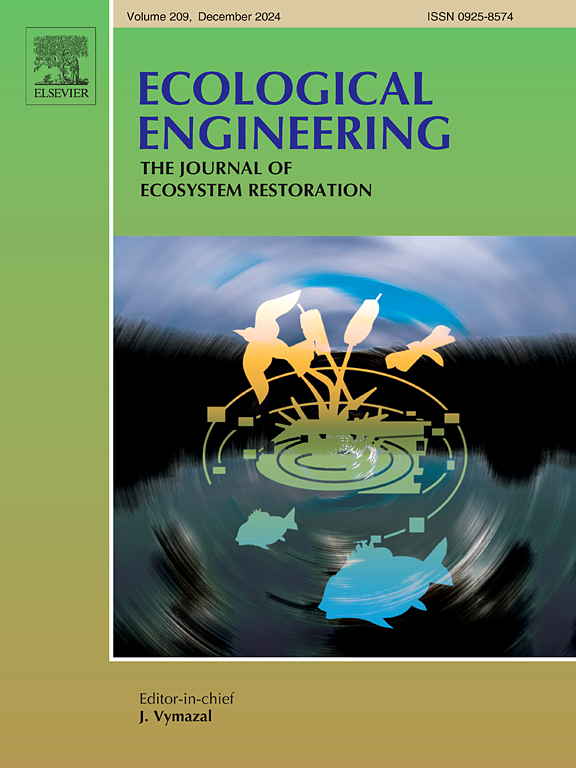Soil organic carbon fractions response to ecological restoration: A global meta-analysis
IF 3.9
2区 环境科学与生态学
Q1 ECOLOGY
引用次数: 0
Abstract
Soil organic carbon (SOC) has a critical influence on soil productivity and degradation. Meanwhile, ecological restoration is essential to prevent carbon (C) losses and reverse land degradation. In this study, 1374 sets of experimental data from 63 peer-reviewed publications were synthesized to quantitatively elucidate the effects of different restoration measures on soil properties and SOC fractions. The results showed that ecological restoration significantly increased SOC, particulate organic carbon (POC), and mineral-associated organic carbon (MAOC) by 37.48 %, 45.73 %, and 36.42 %, respectively. Interventional restoration measured the sequestered carbon in POC at a rate of 50.7 %, which was 17.1 % higher than that achieved through natural restoration. In the tropics, the effect of ecological restoration on MAOC was not significant. In addition, soil texture, soil depth, and restoration duration were important factors regulating the global SOC response to ecological restoration. In summary, the use of ecological restoration to achieve C recovery represents a site-specific application of both proactive and natural strategies. The meta-analysis advances our understanding of how SOC pools respond to various restoration measures and enhances the prediction of restoration outcomes under climate change scenarios.
土壤有机碳组分对生态恢复的响应:一个全球元分析
土壤有机碳(SOC)对土壤生产力和退化具有重要影响。同时,生态恢复对于防止碳(C)流失和逆转土地退化至关重要。本研究综合了63篇同行评议论文的1374组实验数据,定量阐明了不同修复措施对土壤性质和有机碳组分的影响。结果表明,生态恢复显著提高了土壤有机碳、颗粒有机碳(POC)和矿物相关有机碳(MAOC),分别提高了37.48%、45.73%和36.42%。介入修复测量POC固碳率为50.7%,比自然修复高17.1%。在热带地区,生态恢复对MAOC的影响不显著。此外,土壤质地、土壤深度和恢复持续时间是影响全球土壤有机碳对生态恢复响应的重要因素。综上所述,利用生态恢复来实现C的恢复代表了主动和自然策略在特定地点的应用。通过meta分析,我们进一步了解了土壤有机碳库对各种恢复措施的响应,并增强了对气候变化情景下恢复结果的预测。
本文章由计算机程序翻译,如有差异,请以英文原文为准。
求助全文
约1分钟内获得全文
求助全文
来源期刊

Ecological Engineering
环境科学-工程:环境
CiteScore
8.00
自引率
5.30%
发文量
293
审稿时长
57 days
期刊介绍:
Ecological engineering has been defined as the design of ecosystems for the mutual benefit of humans and nature. The journal is meant for ecologists who, because of their research interests or occupation, are involved in designing, monitoring, or restoring ecosystems, and can serve as a bridge between ecologists and engineers.
Specific topics covered in the journal include: habitat reconstruction; ecotechnology; synthetic ecology; bioengineering; restoration ecology; ecology conservation; ecosystem rehabilitation; stream and river restoration; reclamation ecology; non-renewable resource conservation. Descriptions of specific applications of ecological engineering are acceptable only when situated within context of adding novelty to current research and emphasizing ecosystem restoration. We do not accept purely descriptive reports on ecosystem structures (such as vegetation surveys), purely physical assessment of materials that can be used for ecological restoration, small-model studies carried out in the laboratory or greenhouse with artificial (waste)water or crop studies, or case studies on conventional wastewater treatment and eutrophication that do not offer an ecosystem restoration approach within the paper.
 求助内容:
求助内容: 应助结果提醒方式:
应助结果提醒方式:


